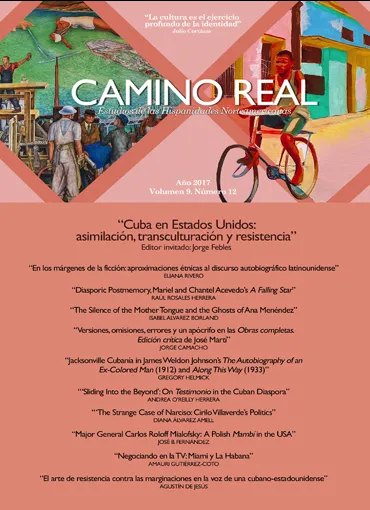
Diasporic postmemory, understood as the fusion between the experience of postmemory and the affirmation of diasporic subjectivity, offers a valid theoretical framework for examining the cultural production of second-generation Cuban-American writers whose works recreate and reframe the stories and images of a traumatic past (in which the writers were not directly involved) as a strategy for interrogating and validating present-day Cuban-American identity. It is within this dynamic that the phenomenon emerges of works centered on making the Mariel exodus that traumatic past −but in this case a past that also happens to be silenced and suppressed− through which the second generation will attempt to affirm its identity. A representative text is Chantel Acevedo’s 2014 novel, A Falling Star, which is analyzed in this essay through the critical perspective of diasporic postmemory. The essay presents how the novel scrutinizes the verbal and visual components of generational transmission that have caused the history of Mariel inherited by the second generation to be both lacking and inadequate, thus becoming an obstacle for present-day identitary affirmation. In this way, the novel “recuperates” Mariel by reaffirming it as an indispensable component of Cuban-American diasporic identity and postmemory.


